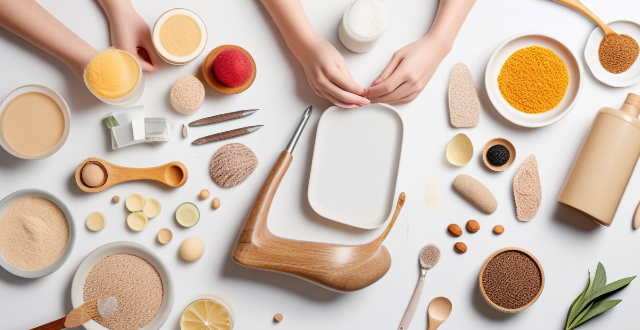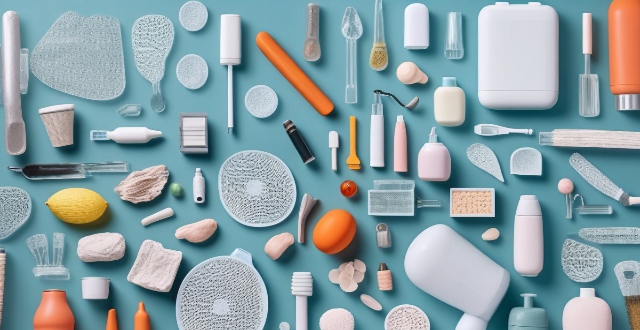Quality Hygiene

What is the significance of personal hygiene in food handling ?
Personal hygiene is crucial for food safety, public health protection, and maintaining quality in the food industry. It prevents cross-contamination, reduces disease transmission, and enhances food quality. Adherence to personal hygiene standards impacts regulatory compliance, consumer trust, and economic implications within the food industry.

Why is personal hygiene important for those who handle or prepare food ?
Personal hygiene is critical for food handlers due to its impact on health, safety, and quality assurance. Cross-contamination and allergen transfer can lead to illnesses, while cleanliness affects food presentation and flavor. Handwashing, proper grooming, and workstation cleaning are essential practices to maintain hygiene.

Can poor personal hygiene lead to skin problems ?
Poor personal hygiene can lead to a variety of skin problems, including bacterial and fungal infections, irritation and inflammation, and other conditions. To prevent these issues, it's important to practice good hygiene, such as regular showering, wearing clean clothes, hand washing, moisturizing, and sun protection.

How can I teach my children about the importance of personal hygiene ?
Teaching personal hygiene to children is crucial for their development. Start with basic concepts and gradually introduce more complex ones as they grow. Emphasize hand washing, covering mouth while coughing, daily bathing, and teeth brushing. Lead by example, make hygiene fun, educate consistently, and use visual aids. Handle resistance with negotiation, incentives, and explaining consequences. Maintaining hygiene habits requires ongoing education on puberty, menstrual hygiene, etc.

What role does nutrition play in maintaining personal hygiene ?
The article emphasizes the importance of nutrition in maintaining personal hygiene. It suggests consuming nutrient-rich foods, developing healthy dietary habits, and supporting the immune system through nutrition to improve overall health and hygiene.

In what ways does poor personal hygiene impact mental health ?
Poor personal hygiene can negatively affect mental health by causing decreased self-esteem, social isolation, and exacerbating symptoms of mental health disorders. It is important to maintain good hygiene habits for overall well-being.

What is the significance of regular bathing in personal hygiene ?
Bathing regularly is essential for maintaining good personal hygiene, offering benefits such as dirt and sweat removal, prevention of body odor, promotion of blood circulation, stress and anxiety reduction, and maintenance of good grooming habits.

How does one's personal hygiene affect their social interactions ?
Personal hygiene is crucial for positive social interactions, boosting confidence, and maintaining good health. Good hygiene habits include regular bathing, teeth brushing, wearing clean clothes, hand washing, and taking care of skin and hair. Poor hygiene can lead to social isolation, misunderstandings, and health risks. Following simple tips can ensure that personal hygiene positively impacts social interactions.

Is it safe to use scented feminine hygiene products ?
This article discusses the potential risks and benefits associated with using scented feminine hygiene products. Possible risks include allergic reactions, hormonal imbalances, and environmental impact, while benefits include personal comfort, confidence, variety, and enjoyment. It is important for individuals to consider their own needs and preferences when choosing whether or not to use scented feminine hygiene products and to consult with a healthcare professional regarding any concerns or questions about specific products.

Is there a difference between personal hygiene and cleanliness ?
Personal Hygiene and Cleanliness are often used interchangeably, but they have distinct meanings. Personal hygiene focuses on the individual's physical well-being, while cleanliness focuses on the environment's tidiness and orderliness. Both are essential for maintaining good health and preventing the spread of infections.

Can using certain feminine hygiene products cause infections or irritation ?
"Can Using Certain Feminine Hygiene Products Cause Infections or Irritation?": This article explores the potential risks associated with using various feminine hygiene products, including infections and irritation. It provides tips on how to prevent these risks by choosing appropriate products, practicing good hygiene, and consulting a healthcare provider if necessary. The article emphasizes the importance of using these products correctly and mindfully to maintain personal hygiene without compromising one's health.

What are the risks associated with poor personal hygiene on health ?
This article discusses the risks associated with poor personal hygiene on health. It highlights various infections and illnesses that can occur due to poor hygiene practices, including skin infections, respiratory infections, gastrointestinal infections, urinary tract infections, sexually transmitted infections, and mental health issues. The article emphasizes the importance of maintaining good personal hygiene habits to prevent these health risks and promote overall well-being.

How often should I wash my hands to maintain good hygiene ?
Washing hands is an essential part of maintaining good hygiene. It helps prevent the spread of germs and diseases, especially during these times of COVID-19. Here are some tips on how often you should wash your hands: before eating or preparing food, after using the bathroom, after coughing/sneezing/blowing your nose, before touching someone else's face, and after handling dirty objects. It's important to wash your hands frequently throughout the day to maintain good hygiene and prevent the spread of germs and diseases.

What steps should be taken to maintain good hygiene during travel ?
The text provides a comprehensive guide on maintaining good hygiene during travel. It emphasizes the importance of packing essential hygiene items, keeping hands clean, practicing safe eating habits, staying clean and fresh, being mindful of surroundings, keeping living spaces clean, and following local customs. The article underscores that maintaining good hygiene is crucial to staying healthy and enjoying a pleasant travel experience.

What are the key principles of food hygiene and safety ?
Food hygiene and safety are crucial in preventing foodborne illnesses and ensuring the well-being of consumers. Key principles include personal hygiene such as washing hands thoroughly, covering cuts and sores, avoiding contaminating surfaces, and wearing appropriate clothing; food handling including keeping food at safe temperatures, cooking food thoroughly, using separate utensils, and avoiding reusing cooking oil; sanitation such as cleaning equipment regularly, sanitizing surfaces, and controlling pests; and storage such as storing food properly, refrigerating leftovers promptly, and labeling and dating products. By following these principles, you can help protect yourself and others from foodborne illnesses and enjoy safe, healthy meals.

Are there any specific products or tools recommended for optimal oral hygiene ?
Optimal oral hygiene is crucial for overall health. Recommended products and tools include electric or manual toothbrushes, fluoride or whitening toothpaste, dental floss, interdental cleaners, antibacterial or fluoride mouthwash, tongue scrapers, and water flossers. Tips for optimal oral hygiene include regular brushing and flossing, regular dental check-ups, a healthy diet, quitting smoking, and drinking water after meals.

What is the importance of dental hygiene in pets and how can it be maintained ?
The Importance of Dental Hygiene in Pets Dental hygiene is a crucial aspect of your pet's overall health and well-being. Poor dental hygiene can lead to various health issues, including bad breath, gum disease, tooth loss, and even more severe problems like heart, liver, or kidney disease. Therefore, maintaining good dental hygiene for your pets is essential. Maintaining dental hygiene in pets involves several steps that should be incorporated into their daily routine. These steps include regular brushing, dental chews and toys, regular checkups with a veterinarian, specialized dental foods, and homemade remedies. Incorporating these steps into your pet's daily routine can help keep their teeth healthy and prevent potential health issues down the line.

What are the best disinfection methods for public spaces during a pandemic ?
Best disinfection methods for public spaces during a pandemic include regular cleaning and disinfection, use of UV-C light disinfection, hand hygiene facilities, and air filtration systems. Regular cleaning and disinfection of high-touch surfaces helps to remove any potential contaminants and reduce the risk of transmission. UV-C light has been shown to effectively kill viruses and bacteria by damaging their DNA or RNA structure. Providing adequate hand hygiene facilities encourages individuals to maintain good hand hygiene practices. Installing air filtration systems with HEPA filters can help to reduce the concentration of airborne particles in public spaces.

What are the most common pollutants measured in air quality monitoring ?
Air quality monitoring is crucial for identifying pollutants that can harm human health and the environment. The most common pollutants measured include particulate matter, nitrogen oxides, sulfur dioxide, carbon monoxide, ozone, and volatile organic compounds. These pollutants can cause respiratory problems, contribute to smog and acid rain, and have negative impacts on crops and vegetation. By tracking these pollutants, governments and organizations can take steps to reduce their emissions and improve air quality.

How do weather conditions affect air quality ?
Weather conditions significantly affect air quality by influencing the dispersion, accumulation, and transformation of pollutants. High temperatures can increase ozone levels, while low temperatures can trap pollutants near the ground. Wind helps disperse pollutants, improving air quality, but calms can lead to pollutant buildup. Precipitation, like rain and snow, can wash pollutants from the air. High humidity promotes ozone formation but aids in particle removal, whereas low humidity inhibits some pollutants and suspends dust. Temperature inversions trap pollutants, degrading air quality, while cold fronts and storms can clean the air through winds and precipitation.

How does exercise affect sleep patterns and quality ?
Exercise significantly influences sleep patterns and quality. Immediate effects include increased alertness and better body temperature regulation for sleep. Long-term, regular exercise improves sleep quality and regulates sleep patterns. Different types of exercise—aerobic, anaerobic, and mindful movements like yoga—all positively affect sleep but may require varying recovery times. The timing of exercise is crucial; morning workouts set the day's tone with minimal sleep interference, while late-night exercises can hinder sleep preparation. Tailoring workout routines to individual needs optimizes rest and overall well-being.

What are the best practices for personal hygiene ?
Personal hygiene is essential for maintaining good health and preventing the spread of illnesses. Best practices include washing hands regularly, showering daily, brushing teeth twice a day, wearing clean clothes, trimming nails, covering mouth when coughing or sneezing, avoiding touching face, keeping living space clean, getting enough sleep, and staying hydrated.

How can I improve my sleep quality ?
Improving sleep quality involves establishing a bedtime routine, creating a comfortable sleep environment, limiting caffeine and alcohol intake, avoiding electronics before bed, exercising regularly, managing stress levels, and considering natural sleep aids.

How does an active lifestyle affect sleep quality ?
The text discusses how an active lifestyle can positively affect sleep quality. It outlines the benefits of physical activity for sleep, such as improved sleep onset, increased deep sleep, reduced sleep disturbances, enhanced REM sleep, and better sleep efficiency. The mechanisms underlying this relationship are also explored, including thermoregulation, stress reduction, neurotransmitter regulation, circadian rhythm alignment, and muscle relaxation. Practical tips for incorporating physical activity into one's routine are provided, such as choosing appropriate activities, establishing a routine, avoiding late-night workouts, being mindful of intensity, and incorporating relaxation techniques. Overall, the text emphasizes the importance of regular exercise for improving sleep quality and suggests ways to optimize its benefits.

What are the key elements of a quality preschool program ?
**Key Elements of a Quality Preschool Program** A high-quality preschool program focuses on the overall development of children, incorporating various elements that support their growth. These include: 1. **Curriculum Design**: - Developmentally appropriate practices. - Integrated learning across domains. - Play-based learning activities. 2. **Qualified Educators**: - Certified teachers with early childhood education credentials. - Continuous professional development opportunities. 3. **Safe and Supportive Environment**: - Physical safety measures. - Emotional support from educators. 4. **Parent Involvement and Partnership**: - Open communication channels. - Opportunities for parental participation. 5. **Health and Nutrition**: - Health policies and hygiene practices. - Nutritious meals and snacks. 6. **Assessment and Evaluation**: - Ongoing observations by teachers. - Developmental screenings for children. 7. **Diversity and Inclusion**: - Culturally responsive teaching methods. - An inclusive environment for all children. 8. **Class Size and Adult-to-Child Ratio**: - Small class sizes. - Adequate supervision ratios. 9. **Curriculum Flexibility**: - Adaptable curriculum to meet changing needs. - Integration of family and community resources. 10. **Active Learning**: - Hands-on experiences. - Outdoor play opportunities. By addressing these key elements, preschool programs can provide a comprehensive and enriching experience for young children, fostering their social, emotional, cognitive, and physical development.

What is the importance of dental hygiene in overall health ?
The Importance of Dental Hygiene in Overall Health Dental hygiene is an essential aspect of maintaining good overall health. Poor dental hygiene can lead to a range of health problems, including gum disease, tooth decay, and bad breath. In this article, we will explore the importance of dental hygiene in overall health and provide tips for maintaining good oral health. How Dental Hygiene Affects Overall Health Gum Disease: Gum disease, also known as periodontal disease, is caused by the buildup of plaque on the teeth and gums. If left untreated, it can lead to inflammation, infection, and even tooth loss. Gum disease has been linked to several systemic health problems, including heart disease, diabetes, and respiratory disease. Tooth Decay: Tooth decay occurs when bacteria in the mouth produce acids that eat away at the enamel on the teeth. This can lead to cavities, pain, and even tooth loss if left untreated. Tooth decay can also affect overall health by causing digestive problems and nutritional deficiencies. Bad Breath: Bad breath, also known as halitosis, is often caused by poor dental hygiene. It can be embarrassing and may even affect social interactions. In some cases, chronic bad breath can be a sign of underlying health problems, such as gum disease or respiratory infections. Tips for Maintaining Good Oral Health Brush Your Teeth Twice a Day: Brushing your teeth twice a day with fluoride toothpaste helps remove plaque and bacteria from your teeth and gums. Floss Daily: Flossing daily helps remove plaque and bacteria from between your teeth where your toothbrush cannot reach. Visit Your Dentist Regularly: Regular dental checkups and cleanings can help identify and treat potential problems early on before they become more serious. Eat a Healthy Diet: Eating a healthy diet low in sugar and high in nutrients can help keep your teeth and gums healthy. Drink Water: Drinking water throughout the day helps rinse away food particles and bacteria in your mouth. Avoid Tobacco Products: Smoking or using other tobacco products can increase your risk of developing gum disease and other oral health problems. Limit Alcohol Consumption: Drinking too much alcohol can dry out your mouth and increase your risk of developing gum disease and other oral health problems.

How do I know if the discounted items at Outlet Stores are of good quality ?
Outlet stores offer discounted items, but it's important to assess their quality before buying. Check for manufacturer defects, research brand reputation, compare prices with non-discounted items, and ask about return policies.

Can meditation or mindfulness practices enhance sleep quality ?
Meditation and mindfulness practices have been gaining popularity for their potential benefits on mental and physical health, including improving sleep quality. These practices involve focusing one's attention on the present moment while calmly acknowledging and accepting one's feelings, thoughts, and bodily sensations. Meditation and mindfulness can enhance sleep quality by reducing stress and anxiety, promoting relaxation, and increasing awareness of sleep habits. To practice meditation or mindfulness for better sleep, individuals should set aside time each day, choose a comfortable environment, focus on their breath, cultivate gratitude and positive thinking, and be patient and persistent in their practice.

How can I establish a daily personal hygiene routine ?
Establishing a daily personal hygiene routine is essential for maintaining good health and well-being. The routine includes morning, midday, and evening practices such as brushing teeth, showering, washing hands, applying deodorant, eating a healthy breakfast, drinking water, taking breaks, tidying up workspace, removing makeup, changing into clean pajamas, and getting enough sleep. Following these steps can help keep you clean, healthy, and confident throughout the day.